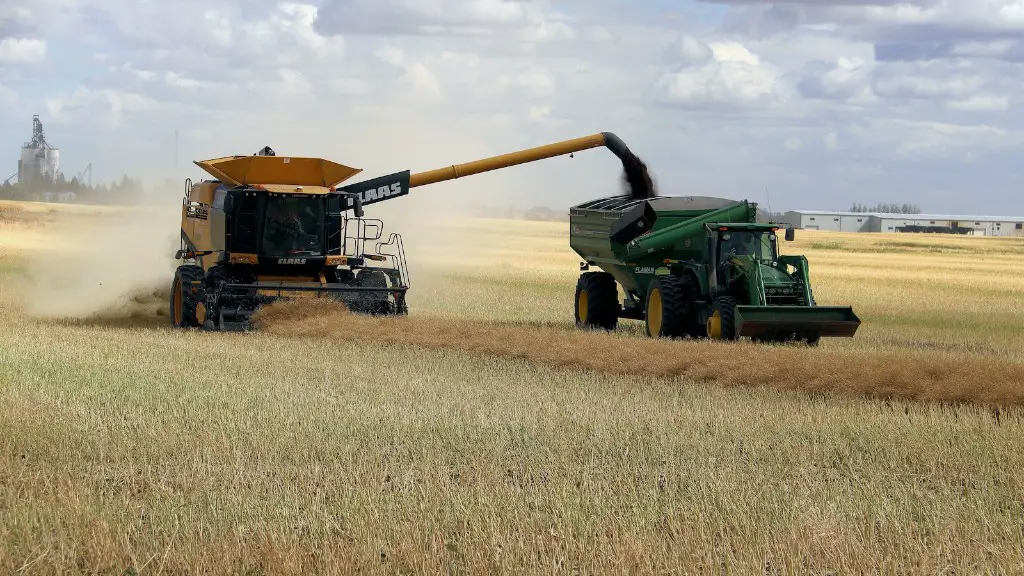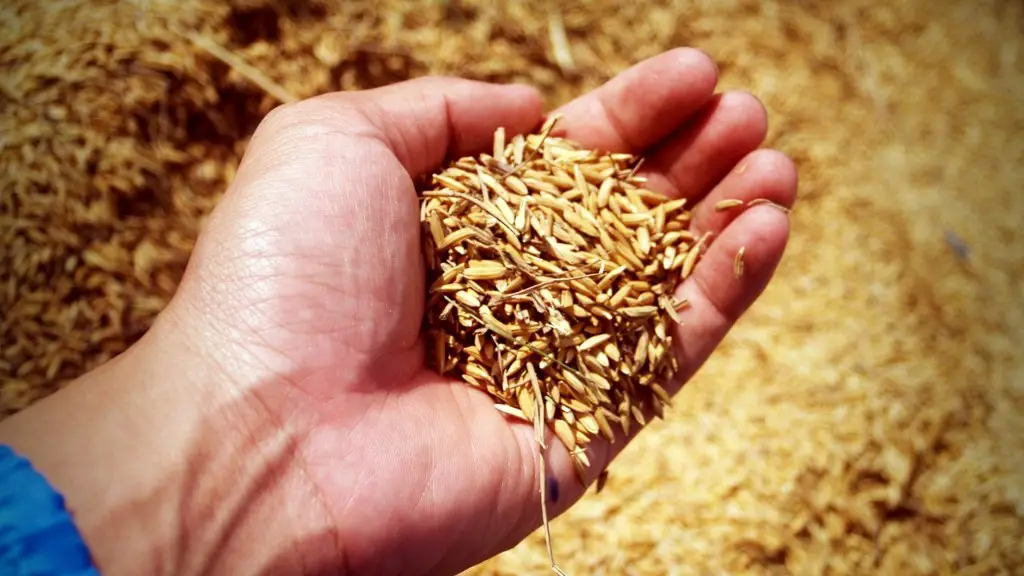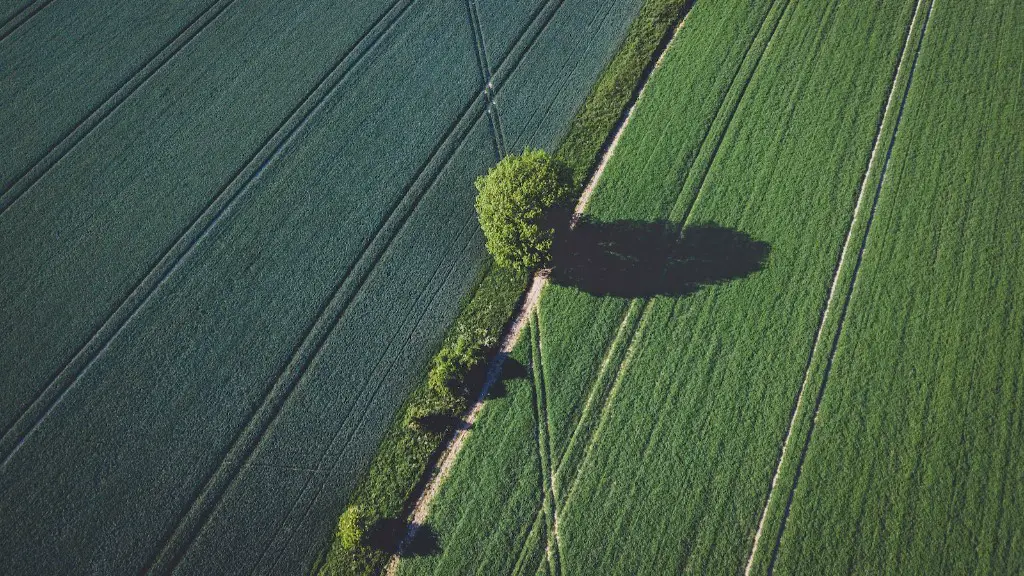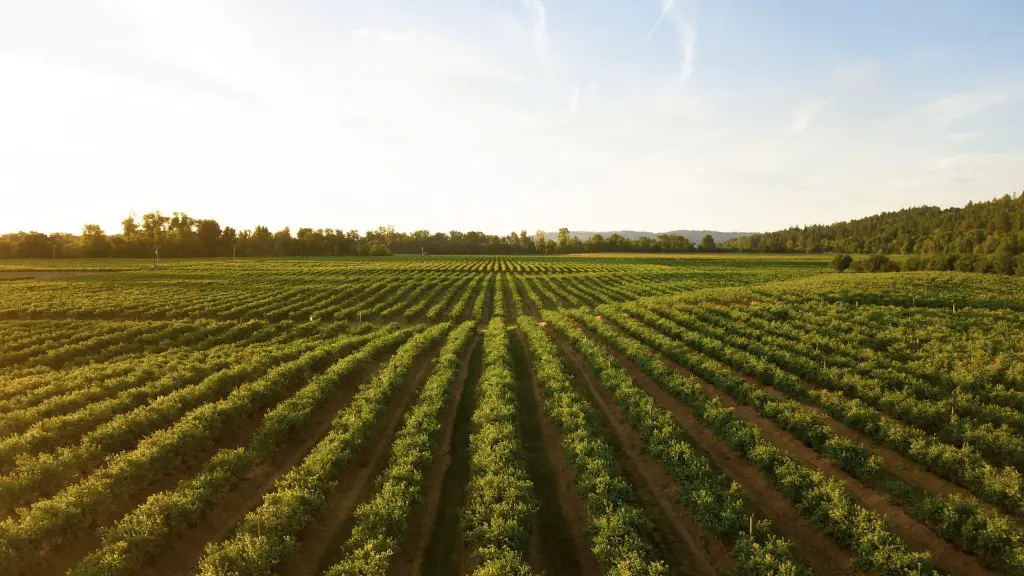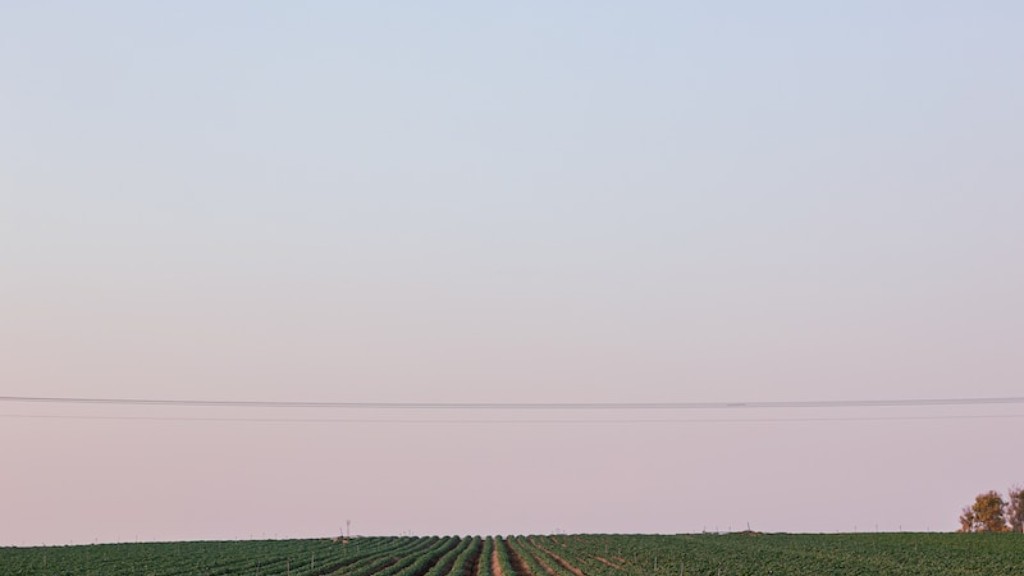Agriculture is widely known for its immensely positive and impactful effects on the environment. However, one should be aware of the potential and sometimes detrimental effects it can have. Agriculture can contribute to climate change and depletes our natural resources and ecosystems when practiced unsustainably. Emissions like phosphorous and nitrogen oxides, methane and carbon dioxide have a culmination effect, ultimately leading to global warming.
In addition to the increase of gases which can cause global warming and other environmental damage, the production of food can lead to habitat and species loss. Modern agricultural methods often involve erosion that reduces soil quality or even toxicity, which can result in soil erosion and water pollution. This can detrimentally impact the environment, leading to further threats for human, animal and plants.
Moreover, the water needed in agricultural production and food waste also accelerates soil erosion, causing more severe floods. Furthermore, the use of pesticides and herbicides affects the environment and threatens human health, as they are often washed away with soil runoff and contaminate water sources, which in turn alters pollinator population and soil organism diversity.
Moreover, the natural biodiversity of a region can be lost due to the introduction of genetically modified organisms, leading to an unrestrained spread of certain species. This can drastically change an ecosystem, as it can be easily overwhelmed. Irrigation can also have its side effects on the environment. If unsystematic irrigation is practiced, it can draw soil salts to the surface and make the soil salty.
In conclusion, whilst agriculture is often considered within environmental efforts, it is important to realize the nuances when practicing it. It is essential to ensure that agricultural activities are managed sustainably to minimize its impact on the environment, and that the practices are employed in a responsible manner.
Air Pollution from Agriculture
Agriculture often involves large-scale burning of crop residues and other organic matter, which increases the production of hazardous gases like carbon monoxide, sulfur dioxide, and nitrogen oxides. These gases are released into the atmosphere and can contribute to global warming. Studies showed that throughout the years, these emissions increased and are five times higher than natural emissions. Additionally, these emissions can be damaging to the environment, as it can lead to the formation of acid rain and particles in the air. Moreover, the increase in air pollution can have an effect on the average temperatures and cause further global warming.
Similarly, soil erosion, which was mentioned earlier, is also a major contributor to air pollution. The ploughing of soil frequently results in dust particles being released into the air, leading to more air pollution. Moreover, when soil and land is left unploughed, it can create dust storms which can damage the environment, agricultural crops and livestock, leading to further issues.
In order to reduce agricultural air pollution, numerous farmers and agricultural workers have incorporated methods such as reduced tillage, rotation and cover crop systems, which help reduce soil erosion and thus reduce the amount of dust particles released.
Water Pollution from Agriculture
Agriculture also causes water pollution, which has severe consequences on the environment and human health. Excess fertilizers and pesticides seep into waterways and contaminate the environment, which can have dire effects on fish, shellfish and other aquatic species. Recent studies conducted by river monitoring agencies have highlighted a significant increase in water nitrate levels, due to water contaminated by fertilizer. This nitrate pollution, spread by surface runoff and seepage, can lead to eutrophication of bodies of water and have a detrimental impact on the environment.
Moreover, agricultural waste products, such as animal manure and leftover food scraps, can be a major contributor to water pollution. These waste products not only contaminate the water with pollutants, but also acts as a food source for pathogens, leading to further water contamination. This can in turn lead to water shortages, loss of biodiversity and health complications.
In order to reduce water pollution from agriculture, farmers can employ a number of techniques, such as using biodegradable feed additives and waste management systems. Additionally, farmers should increase their usage of animal-resistant crops, biodiesel and other bio-based products, which in turn reduce the amount of fertilizer and pesticides being used.
Soil Erosion
In order to produce food, soil must be ploughed and managed. This process can be concerning if employed intensively and continuously, as the soil is left exposed to the elements, which can cause erosion and depletion. When significant amounts of soil are lost, the quality can decrease and even become toxic, as certain chemicals and heavy metals may be released.
Moreover, soil that has been abused or compacted due to of over-ploughing will often become very hard and cannot support any kind of growth. This has a direct negative effect on agricultural output, leading to losses in food production. Additionally, soil erosion can also directly contribute to water pollution, as highly erodible soil can increase flooding, as well as a rise in water temperatures.
In order to reduce soil erosion, farmers have employed a multitude of methods, such as cover crops, terracing and changing to specialization crop rotations. These methods have been hugely effective in minimizing the ploughing of soil, as well as reducing the spread of disease and weeds.
Deforestation
Deforestation is another major contributor to environmental damage due to its effect on climate change and loss of habitats. The increase of agricultural land is one of the leading causes of deforestation, as enormous areas of forests are being cut down for cropping and animal farming. This can lead to severe drawbacks on the biosphere, as it can deplete the natural environment and lead to further species extinction.
Moreover, it can significantly affect global temperatures, as the lack of trees leads to an increase in the Earth’s temperature. This can in turn lead to extreme weather conditions, such as drought and floods, that can further hinder the quality of land. It is thus essential that farmers are working with monitored and sustainable methods, so as to minimize their effect on the environment.
In order to reduce the effects of deforestation, there is a need for sustainable practices that focus on limiting the use of timber, promoting agroforestry and efficient land use. Additionally, it is vital that there is much wider use of technologies, such as remote sensing, which can help identify areas of potential concern, and forest management systems which can bring awareness of deforestation practices.
Limitations of Sustainable Agriculture
It is often the case that even with the best intentions, implementing a sustainable and sustainable agricultural practice is no easy task. In many parts of the world, this can be due to financial restrictions, as well as lack of trained personnel and suitable technology. This restricts the ability for farmers to utilize sustainable practices to maximize their agricultural production without damaging the environment.
Moreover, it can often be challenging for farmers to adhere to sustainable practices due to their location and market position. When their production is negatively affected by environmental conditions, such as severe droughts, farmers can often be forced to adopt unsound practices in order to protect their income. In order to reduce these issues, it is essential that governments support farmers in result of natural disasters and enable them to continue practicing sustainable methods.
Additionally, ensuring that farmers have access to the appropriate tools and resources is paramount to protecting the environment whilst also increasing agricultural production. If a nation is able to support their farmers in their endeavors, there can be an increase in food supply and standards, with a reduction in environmental destruction, which is the ultimate goal of sustainable agriculture.
